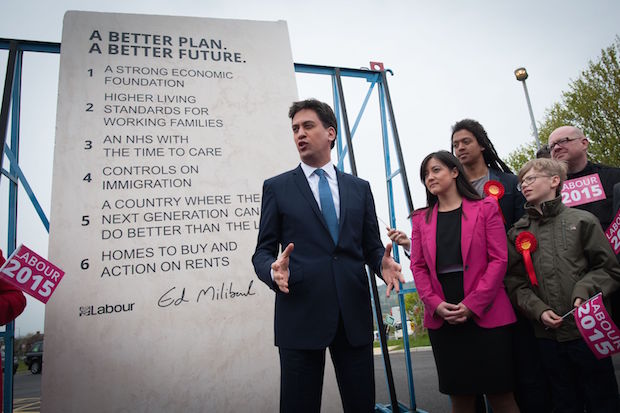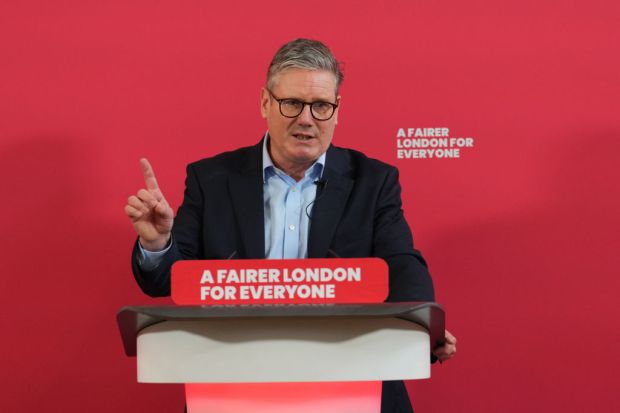After losing the leadership contest in April, the left of the Labour Party regrouped. Organising as part of old factions like the Socialist Campaign Group and new ones such as Don’t Leave, Organise, they have held Zoom events and created websites, pledging to make life difficult for Keir Starmer. One thing is missing, however, from their plans: any serviceable ideas.
The left of the party can’t seem to name one solid thing in policy terms on which they disagree with Starmer. And, they appear unable to point to a single practical thing they would do differently had they won the leadership contest. Instead, they frame everything in culture war terms, and when the discussion does get round to policy, it’s so vague it falls to dust.
This isn’t confined to the left of Labour – it’s a process that has been going on for a decade across the whole of the party and is a major reason the party has lost four elections on the trot. It is tempting to blame Corbyn, but the hollowing out of any serious thinking within the Labour universe began before he became leader, and actually gets the causation wrong. It was an increasingly anti-pragmatic Labour Party culture that created the space for Corbyn to become and then remain leader of the party.
The trend began under Ed Miliband and for the most part was complete by the time Labour got trampled in the 2015 general election. While a new coalition government stormed ahead in 2010 with plans to change the country, Labour seemed spent. Everything they suggested was reactionary and weak; remember the party’s complaints that cuts were happening ‘too far and too fast’?
While you could blame burnout from 13 years in government for this initially, the problem only got worse over time. Miliband is remembered for being a policy wonk, yet very few solid ideas that resonated with the public emerged during his leadership. Take the infamous ‘Ed Stone’. While everyone remembers it mainly as an embarrassing spectacle, in retrospect it’s notable how empty the actual pledges on it were. ‘A strong economic foundation’, ‘An NHS with the time to care’, even ‘Controls on immigration’ which upset Labour activists at the time wasn’t backed up by a real plan to control immigration in actionable terms.
Compare the lack of substance on the Ed Stone to the Blair 1997 pledge card and you can see the rot had already set in by that stage. You could point to Miliband’s 2013 freeze on energy prices as a policy that was both concrete and had cut through. But one policy in a decade is pretty slim pickings.
Labour’s problem has continued for reasons that are obvious when you stop to consider them. Post-2010, Labour ceased looking for Tory or even centrist converts and began to speak only to itself; an increasingly small group of those who were supposedly ideologically pure. This got much worse under Corbyn but it was established during the Miliband era.
Meanwhile, the Conservative party over the last decade has shifted from being economically conservative to at least partially championing a larger public sector. At no point have Labour ever seemed capable of challenging any of this effectively.
Reversing this trend within the Labour party will be one of Keir Starmer’s biggest challenges. In order to even come close to winning an election again, he will need policies that resonate with the general public, along with people who can sell these policies through the media. At the moment, whatever his talents and qualities, he’s staring at a blank sheet of paper in an empty room. <//>
Got something to add? Join the discussion and comment below.
Get 10 issues for just $10
Subscribe to The Spectator Australia today for the next 10 magazine issues, plus full online access, for just $10.




















Comments
Don't miss out
Join the conversation with other Spectator Australia readers. Subscribe to leave a comment.
SUBSCRIBEAlready a subscriber? Log in